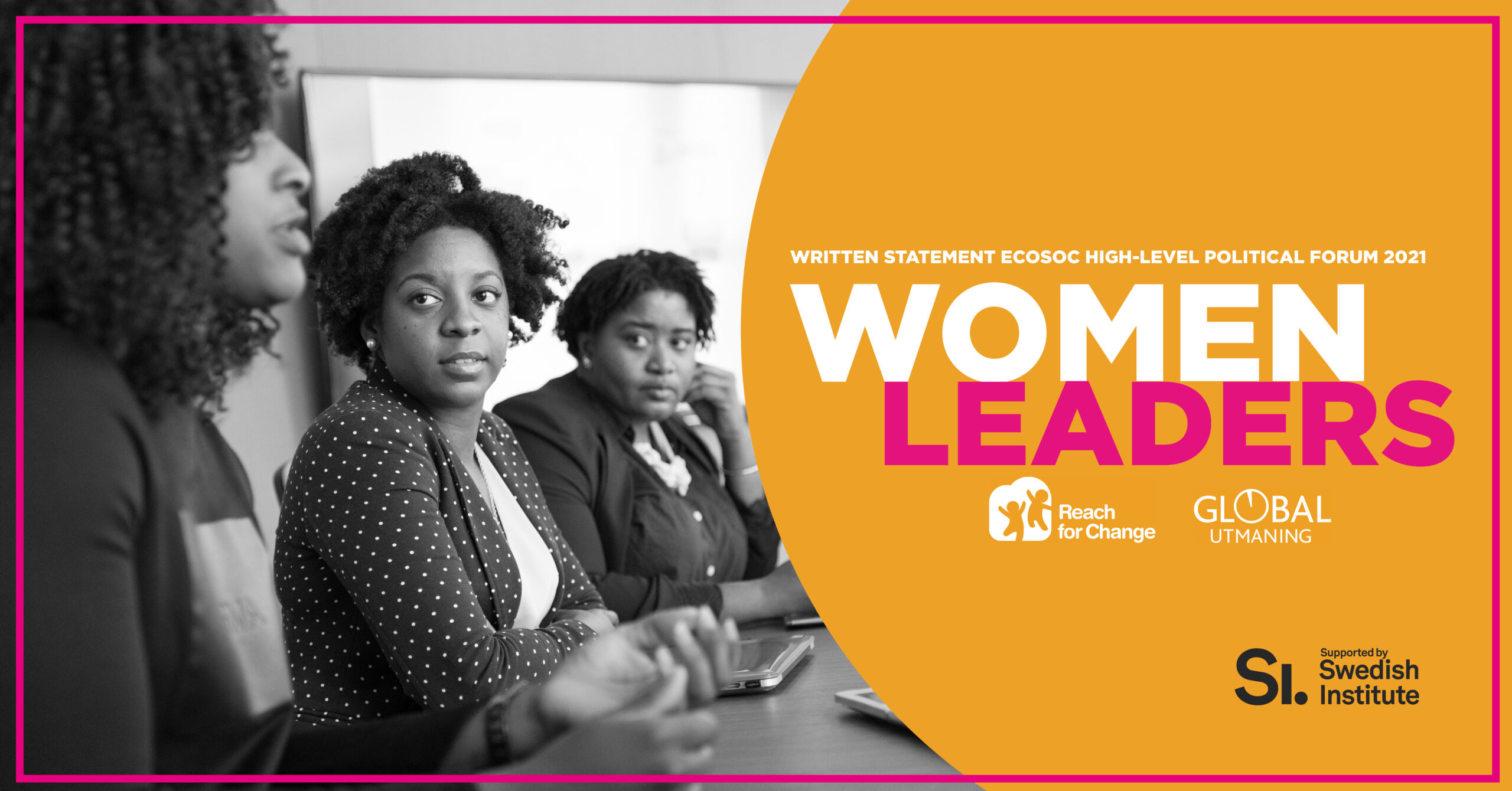3 år sedan
As an organizations in consultative status with Economic and Social Council, Global Utmaning has submitted a written statement on the occasion of the annual High Level Political Forum. The statement is part of the Women Leaders strategy to further address the issue of structural injustice for female social entrepreneurs and promote a more inclusive and equal financial sector – globally, nationally and locally. Women Leaders is a joint initiative by Global Utmaning and Reach for Change, with support from the Swedish Institute.
Written statement 2021:
We are in urgent need of finding solutions to achieve the global goals. Global challenges, such as the Covid-19 pandemic and the climate crisis, affect women and men differently and exacerbate gender inequalities. Girls and women belong to the societal group that is particularly vulnerable to uneven resource distribution, oppression and social exclusion. As a consequence, women make up the majority of the world’s poor, and in step with increasing global challenges, the situation for women and girls aggravates. The widened gender gap needs to be seen through a lens of intersectionality with ethnicity and race. However, women are powerful catalysts for development and experience shows that investing in women’s economic empowerment sets a direct path towards gender equality, poverty eradication, inclusive economic growth as well as sustainability and resilience. Building capacity for women’s economic independence is crucial in the Covid-19 response as well as an effective path for the achievement of the 2030 Agenda.
In 2019, only 3 percent of the global venture capital was invested in female founded businesses and the figures for female founders from minority groups are even more dismaying. During the Covid-19 pandemic, venture funding to female-founded enterprises fell significantly on a global scale, a 27 percent decrease compared to 2019, according to data. To exclude talented female entrepreneurs, on the basis of gender or background, is a loss for the whole society. Barriers for female entrepreneurs are both normative and structural. To overcome these hurdles, political efforts must be put on policies and initiatives for equal and efficient distribution of capital.
The importance of investments and the investor community are often overlooked when searching for drivers of change for greater gender equality, diversity and sustainability. The flow of investment capital needs to be diversified, less focused on the short-term and more focused on the long-term, with innovations promoting the necessary combination of sustainability and profitability. Including women in leadership and investment positions is key to making the transition possible. Building better structures in a post-pandemic recovery context requires a radical shift in the investment landscape, targeting both regulations and norms. By acknowledging the power of investments that today reinforce gender inequalities, we can turn it around and use it to put pressure and promote diversity and equality in companies, and thus benefit society at large.
In the Women Leaders initiative, structural barriers for female social entrepreneurs are targeted and the necessary global knowledge exchange is encouraged. Female entrepreneurs often deliver innovative solutions to complex problems which the public sector has a hard time coping with. The experience of cultivating and adopting these innovative solutions with social impact is often greater in the Global South and something for the North to learn from. Consequently, Global Utmaning (Global Challenge) wants to see active political efforts to promote a more inclusive and equal financial sector – globally, nationally and locally. For a sustainable and resilient recovery from the Covid-19 pandemic, decision-makers, together with institutional investors and private investors, must take the lead for gender equal investments and encourage private venture capital to be distributed more efficiently.
———————————————–
Read more about the Women Leaders Initiative and the previous written statement from 2019
Read all Statements submitted by organizations in consultative status with the Economic and Social Council (Global Utmaning on page 273) here




